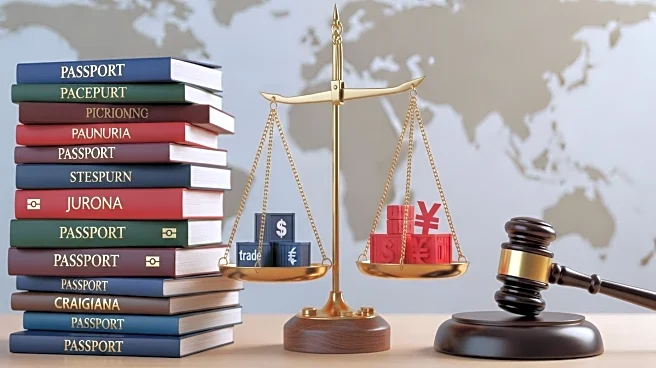What's Happening?
Recent executive orders and court rulings have introduced significant changes to U.S. trade policy, affecting tariffs and the scope of presidential power. President Trump's Executive Order 14257 declared a national emergency over the U.S. trade deficit, imposing reciprocal tariffs on various imports. A subsequent order on September 5, 2025, adjusted the tariff lists, impacting goods like bullion and medicines. The U.S. Court of Appeals for the Federal Circuit has challenged the president's authority under the International Emergency Economic Powers Act, questioning the constitutionality of broad tariff impositions. The proposed Trade Review Act of 2025 seeks to restore Congressional oversight on new tariffs, requiring economic impact analyses and legislative approval.
Why It's Important?
These developments have significant implications for U.S. expats, particularly those involved in import-export businesses or with income streams affected by trade policies. Increased tariffs could raise the cost of imported goods, affecting business expenses and personal finances. The legal challenges to executive power may lead to reversals or adjustments in tariff policies, impacting tax returns and financial planning for expats. The situation underscores the importance of staying informed about legal and regulatory changes, as they can directly influence economic activities and compliance requirements for U.S. citizens abroad.
What's Next?
Expats should closely monitor ongoing legal proceedings and potential legislative changes that could alter the current trade and tariff landscape. The outcome of court challenges and the fate of the Trade Review Act will be critical in determining the future of U.S. trade policy. Expats may need to adjust their financial strategies and tax filings in response to these changes, potentially seeking professional advice to navigate the complexities of international trade and taxation.









